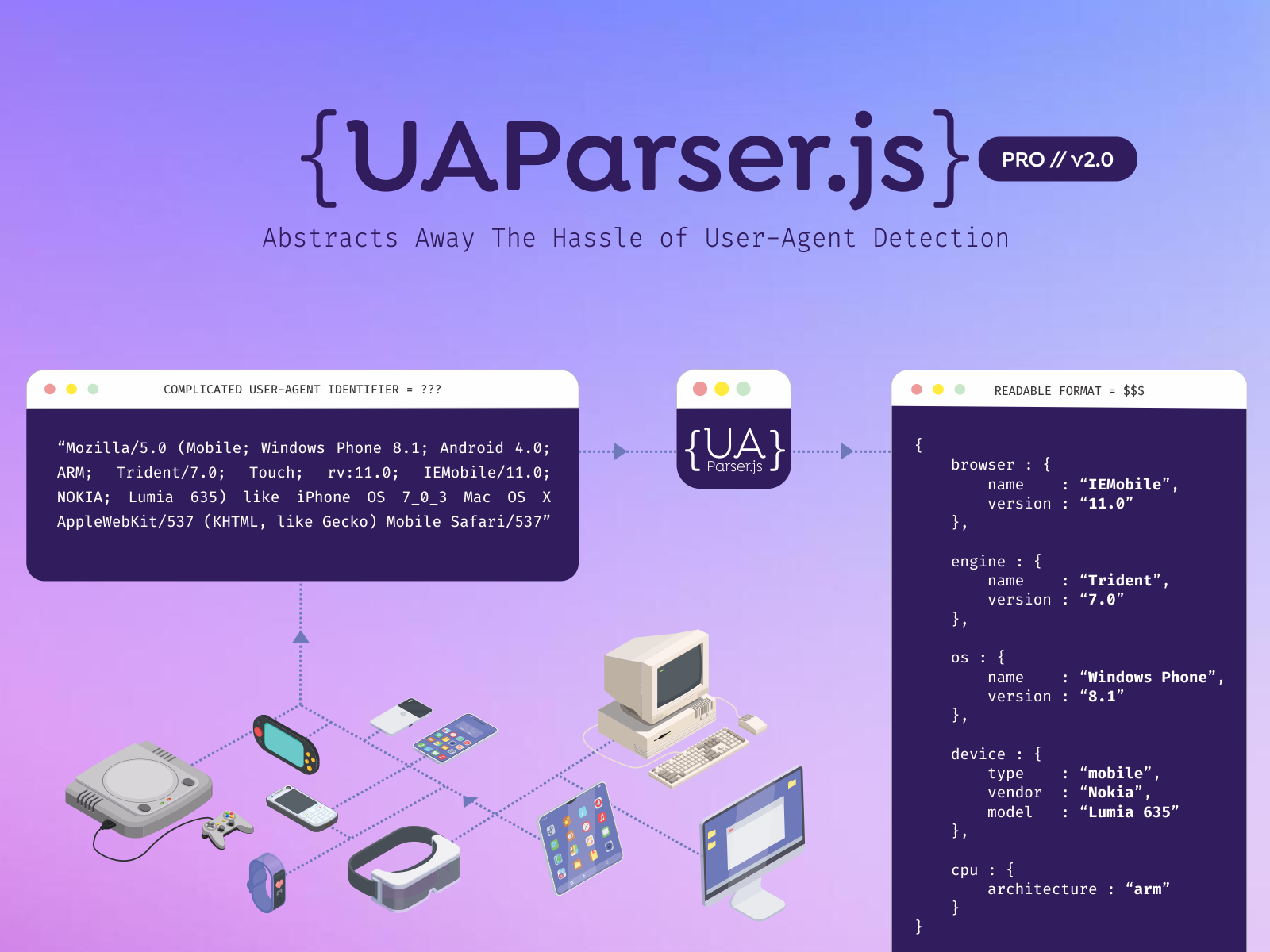Device Detection Accuracy
- ua-parser-js:
'ua-parser-js' excels in device detection accuracy, supporting a wide range of devices and browsers. It can parse complex user-agent strings and provide detailed information about the user's environment.
- express-useragent:
This library offers good accuracy for user-agent parsing, identifying major browsers and devices effectively, but may not cover all edge cases or obscure devices.
- device:
The 'device' library provides basic detection capabilities, focusing on identifying mobile, tablet, and desktop devices. However, its accuracy may be limited compared to more advanced libraries.
- express-device:
'express-device' enhances accuracy by leveraging the Express.js framework, allowing for more precise detection of devices and their capabilities, including specific device types and operating systems.
Integration with Frameworks
- ua-parser-js:
While 'ua-parser-js' is a standalone library, it can be integrated into any JavaScript application, but it does not provide specific middleware for frameworks like Express.
- express-useragent:
Similar to 'express-device', 'express-useragent' is built for Express.js, making it easy to incorporate into existing Express applications without additional configuration.
- device:
The 'device' library can be integrated into any Node.js application but does not offer specific middleware for frameworks, requiring manual implementation for routing based on device type.
- express-device:
As a middleware specifically designed for Express.js, 'express-device' integrates seamlessly, allowing developers to use it directly in their route handling and middleware stack.
Ease of Use
- ua-parser-js:
'ua-parser-js' has a slightly steeper learning curve due to its comprehensive features, but it provides detailed documentation that aids in understanding its capabilities.
- express-useragent:
This library is also easy to use, offering a clear API for accessing user-agent data, making it suitable for developers who want quick access to device information.
- device:
The 'device' library is straightforward to use, requiring minimal setup and configuration, making it accessible for developers looking for quick device detection.
- express-device:
'express-device' is user-friendly for Express users, providing a simple API to access device information and allowing for easy implementation in route handling.
Performance
- ua-parser-js:
While 'ua-parser-js' is powerful, its performance can vary based on the complexity of the user-agent strings being parsed. It is generally efficient but may require optimization in high-load scenarios.
- express-useragent:
This library is designed to be efficient within the Express framework, offering quick access to user-agent data without adding substantial overhead.
- device:
Being lightweight, 'device' has minimal performance overhead, making it suitable for applications where performance is critical and device detection is needed only occasionally.
- express-device:
'express-device' is optimized for use within Express applications, ensuring that it does not significantly impact performance while providing necessary device information.
Community and Support
- ua-parser-js:
'ua-parser-js' has a strong community and is widely used, offering extensive documentation, examples, and community support for troubleshooting and enhancements.
- express-useragent:
This library also enjoys good community support due to its integration with Express, making it easier to find examples and solutions to common issues.
- device:
The 'device' library has a smaller community, which may result in limited support and fewer resources for troubleshooting and development.
- express-device:
As part of the Express ecosystem, 'express-device' benefits from a larger community and more extensive documentation, providing better support for developers.












